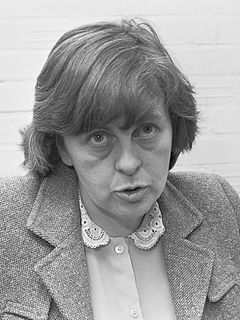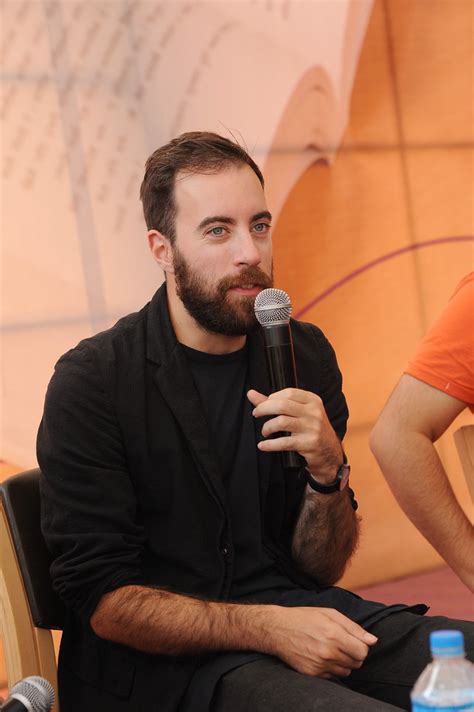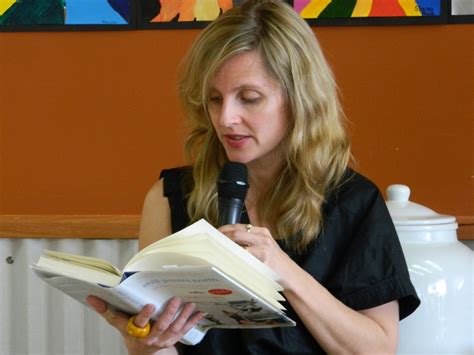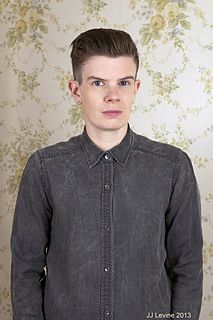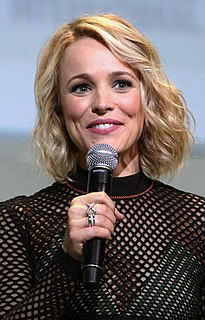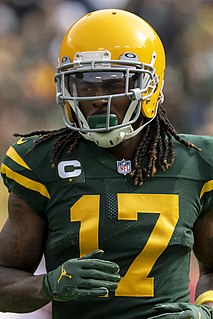A Quote by Bernadette Devlin
It did not seem to me that prejudice, poverty, discrimination, repression and racism were confined to the North of Ireland. I could see them everywhere I spoke and still cannot comprehend the mentality that argues that I should have pretended not to see them, because it wasn't my business.
Related Quotes
In almost every professional field, in business and in the arts and sciences, women are still treated as second-class citizens. It would be a great service to tell girls who plan to work in society to expect this subtle, uncomfortable discrimination-tell them not to be quiet, and hope it will go away, but fight it. A girl should not expect special privileges because of her sex, but neither should she "adjust" to prejudice and discrimination.
Politicians often like to suggest that their policies come about through objective thinking, but if you look at British fascists, for example, what you see - what I see - is a group of people coming to the decisions they came to because something happened to them when they were nine-years-old, or because of some deep prejudice that formed in them subsequent to that.
What surprises me is-even though discrimination against women and racial discrimination still exist, they have improved a lot, especially among artists. And just when I felt I could finally take a break, I encounter the age discrimination. I turned 72 and started noticing a drastic difference in people's attitudes. I started with racism and sexism in the beginning and fought them so hard and was finally ready to relax. Then, here comes ageism, and I feel like, "Give me a break!"
I wasn't in a position that some other memoirists are, dealing with families who fed them meth, or kidnapped them, or did something that would make the writer not want to see that family again. I wanted to see my family. I wanted to celebrate them. I was proud of who we were, in the wilderness, floating down rapids or hiking over glaciers, and everywhere else.
I still use the pronoun she for my publicity materials, and for mainstream media stuff, for two reasons: the first is that I do a lot of work in public schools, and I want those young women and girls to see every kind of she there can be. I want them to see my biceps and my shorn hair and shirt and tie and for some of them to see me as a possibilityI want them to see me living outside of the boxes, because they might be asphyxiating in their own box and need to see there is air out here for them to breathe, that all they have to do is lift the lid a little.
The white poor also suffer deprivation and the humiliation of poverty if not of color. They are chained by the weight of discrimination though its badge of degradation does not mark them. It corrupts their lives, frustrates their opportunities and withers their education. In one sense it is more evil for them because it has confused so many by prejudice that they have supported their own oppressors.
It's just insane because, as a longtime WWE fan, I still have all of my action figures in storage. Now to have my own, and to see my nephews play with them, to see kids tweet me pictures with them, and to see people are actually going out of their way searching all of these stores trying to find them, it's really cool and humbling.
Well, you can do whatever you want, but just don’t call it inequality. Put the word poverty there. Because we have many rich people on our board, and when they see the word poverty that makes them feel good, because [it means] they’re really nice people who care about the poor. When they see the word inequality it makes them upset, because [it means] you want to take money from them.
Those who automatically say that the social pathology of the ghetto is due to poverty discrimination and the like cannot explain why such pathology was far less prevalent in the 1950s, when poverty and discrimination were worse. But there were not nearly as many grievance mongers and race hustlers then.
I spoke to a blogger. It was election time when we were doing the movie and Hillary Clinton was still in the running. This blogger was doing a story on democratic women who were anti-Hillary. He was on the computer speaking to these women and it made me realize that you can reach a much broader audience online but on the other hand Russell's [Crowe] character argues that you still need to get on the streets and see people face to face, and check your facts.
